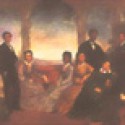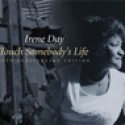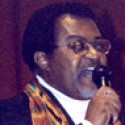It seems that some states and many local municipalities have been loath to fully embrace Dr. Martin Luther King Day with the genuine zestful exuberance afforded other national holiday observances. New York State, however, has been a leader in helping to define the cultural context and spirit of the King Day commemoration.
Credit for this development should be rightfully attributed to the George E. Pataki Administration, which for the past seven years has implemented a program designed to encourage community-based initiatives through volunteerism, charity, the arts, and community uplift aimed at assisting those regarded as the least among us. This year in Albany the keynote speaker for the King Memorial Observance was the Reverend Dr. Joseph E. Lowery, founder and president emeritus of the Southern Christian Leadership Conference and a member of Dr. King’s inner circle.
In recent years, keynote speakers have included prominent New York leaders, including former congressman Reverend Floyd E. Flake and the Reverend Calvin O. Butts III. Each year the observance is framed by gospel artists, celebrities, and choirs that help to solidify the event as a statewide spectacular celebration of community and human spirit, now extended to all 62 counties.
It took 15 years to create the federal Martin Luther King Jr. holiday. Congressman John Conyers (D – Michigan) first introduced legislation for a commemorative holiday four days after King was assassinated in 1968. After the bill became stalled, petitions endorsing the holiday containing six million names were submitted to Congress. Conyers and New York representative Shirley Chisholm submitted King Holiday legislation each subsequent legislative session. Congress passed the holiday legislation in 1983, and it was then signed into law by President Ronald Reagan.
A compromise, moving the holiday from January 15, King’s birthday, which was considered too close to Christmas and New Years, to the third Monday in January helped to overcome opposition to the law. In 1973 Illinois became the first state to adopt King Day as a state holiday. In 1986 the federal King holiday went into effect. By 1989, the King holiday was adopted in 44 states. They came grudgingly, but eventually they came.
Today the question is: Will governors use their federal mandate to vigorously promote Dr. King’s holiday and his notion of beloved community, or will they become shrinking violets on the one holiday observance that calls into action our highest ideals? Political rhetoric and speeches about King’s dream ring hollow without acts of goodwill and human kindness espoused by King. The national King holiday observance provides a rare opportunity to work toward transforming Dr. King’s dream into social reality.
Consensus for King Day was hard won. A number of states resisted celebrating the holiday. Some opponents said King did not deserve his own holiday, contending that the entire Civil Rights Movement, rather than one individual, however instrumental, should be honored. Several southern states include celebrations for various confederate generals on that day, which they call Human Rights Day. Arizona voters approved the holiday in 1992, only after a threatened tourist boycott. In 1999 New Hampshire changed the name of Civil Rights Day to Dr. Martin Luther King Jr. Day and became the last state to adopt a state King holiday.
Twenty-two years after I proudly participated in the march on the Mall in Washington D.C., led by Stevie Wonder and Mrs. Coretta Scott King in support of a national holiday for Dr. King, I yet remain optimistic. But I am somewhat confounded that in 2004 some leaders in state government still do not grasp the potential of this holiday, which perhaps more than any other stands to heal, build, and unify our nation.
In 2004 some state municipalities have allowed that this celebration of the human spirit is optional and, for the most part is viewed with a ho-hum attitude. Many of those states that do embrace the holiday seem to confine it to the classroom as a mere scholastic exercise. For example, California, the nation’s largest state, focuses its King Day observance largely within its public school districts, encouraging a day of reflection on Civil Rights.
In contrast, in New York State King Day emphasizes year long volunteerism, along with cultural, artistic, and community cooperation, which could become a cultural template for the other 49 states to adopt. In 1997 New York State, under the leadership of Governor George E. Pataki, created the Community Service Initiative (CSI) to remember and honor Dr. Martin Luther King, not just as one day but throughout the year. The King Community Service Initiative urges New Yorkers to strengthen their communities by opening their hearts and extending their hands to feed the hungry, house the homeless, and care for those with debilitating disease and those less fortunate. The common thread linking these activities is reaching beyond conventional social boundaries to promote interracial cooperation.
This year the governor presented the distinguished Martin Luther King Jr. Humanitarian Awards to outstanding individuals who have made profound contributions to their communities and to society at large. More than 1,000 prominent community leaders and dignitaries attended the observance in Albany to participate in a program of spiritual enrichment, musical performances, and award presentations.
The New York model is steeped in diversity. It is not only about racial tolerance, but emphasizes contributions made by all segments of the population to the human family. Governor Pataki believes it is our solemn obligation to honor the memory of Dr. King, not just on this day but every day of the year by keeping the dream alive for all New Yorkers. Award recipients hailed from regions throughout the state and included youth, adults, and seniors who contribute their time and talent to benefit others. Sponsored by the State University of New York, this year’s observance was broadcast live and available on cable public access channels in most regions and in the five boroughs of New York City, airing on Channel 25 WNYE TV.
The growing involvement of individuals, organizations, schools, churches, and community groups in the statewide celebration demonstrates how far we have come corporately in New York State. Yes, we still have a long way to go, but thank God the Governor’s Community Service Initiative has got the ball rolling. Just how much farther we still must travel to become a nation indivisible by race, class, creed, and gender bias is hard to predict.
No doubt naysayers would argue that the display on King Day is mere political folly. But that would miss the point. The net result derived from the New York State experience with King Day is a well-thought-out and conceptually sound thematic presentation extolling the highest ideals and principles that Dr. King left as his legacy. New York State’s experience with King Day, at least in theory, is that Dr. King’s Day warrants deeper personal reflection and recommitment to action by each person toward the goal of fulfilling the American ideals Dr. King lived, taught, and preached. The Pataki initiative has established a statewide narrative that firmly sets the course for future King Day celebrations. Governor Pataki said, “Dr. King’s memory will always live long in our hearts with eternal appreciation for his work as a man with great respect for all mankind.”
Irrespective of whatever tough political choices Governor Pataki has made during his tenure, it seems clear that the King Memorial Day observances in New York State provide a beacon of humanity and hope offering a sterling example of what state governments can do to ensure that Dr. King’s dream becomes a practical living reality under one nation, undivided.
Dennis Day is a resident of New York City and can be reached at ddaymedia@aol.com



